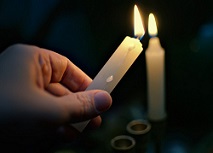teacher/student
 genkaku
Northampton, Mass. U.S.A. Veteran
genkaku
Northampton, Mass. U.S.A. Veteran
Not trying to be uppity, but I wrote this on my blog this morning and thought others might like to dip in an oar. Sorry for posting the whole of it, but I can't get the linking mechanism to work.
Sunday, January 18, 2015
"WHAT WOULD JESUS DO?"
Teacher and student -- who hasn't played one role or the other at one time or another ... in spiritual effort, parental relation or anything else?
In spiritual effort -- a format that has concerned me -- it is interesting how assured the student can be.
I've been there and speak from some experience: How damned convinced/assured the student can become as regards the teacher. Devotion or revulsion can sweep in like a tsunami and woe betide the questioning mind that tries to intervene. Texts and bones and utterances become proof-positive of the teacher's spotlessness, whether for good -- and it's often the best -- or for evil.
The student will use words like "authentic" and "true" without a second thought and the subtext message to those in the neighborhood is: Do not fuck with me!
It's a phase born out of the correct notion that a dedicated determination is part and parcel of a fruitful spiritual life. With any luck, it will wear out ... and sometimes not. Some will invariably go to their graves swooning, "What would Jesus do?"
What has always curious-ed me is what the teacher might say to the student's sometimes-unbridled, pedal-to-the-metal or squishy devotion. I always thought the Dalai Lama had a pretty good bead on things when he observed, "It can't be helped."
But likewise I also thought a pretty good response cropped up in "NCIS," a crime serial on American TV. In it, a group of naval investigators delves into and solves one murder or another. The focal point of the group is a former gunnery sergeant named Gibbs ... a crusty and thinly enigmatic fellow who leads the investigations and orders his crew around.
And in one of the episodes, Gibbs admonishes an underling: "I don't want you to BE me -- I want you to LEARN from me."
In one sense, it's a dicey distinction, but in another, it strikes me as what any good teacher might really hope for -- learn from what I do right; learn from what I do wrong; and make up your own damned mind.
Without such an approach, how could spiritual life flower in any meaningful -- not to mention truthful -- way?
There is probably no skipping over the land in which "authentic" teachings flourish. You've got to be a kid before you become an adult. But I see no reason not to keep it in mind. Everyone learns responsibility at his/her own pace.
And with that in mind, perhaps it would be useful to ask not so much "what would Jesus do," but who -- precisely and without catty posturing and fortune-cookie paradox -- is the teacher and who is the student.
From where I sit, the line is not just blurry. It doesn't exist.

Blow the candle out.

Comments
"This web page is not available"
@SpinyNorman -- Sorry for my remedy.
Great blog entry.
Perhaps so. Good place to be.
Most of us are in need of good companions. The traditional eastern apprenticeship guru model is not always going to work so well in the West. At the moment it is still often used. We do have similar templates of seniors, teachers, craft apprenticeships, professors etc passing on a skill set.
I have found that people here under tuition of seniors, sanghas, instruction etc are deepening in practice and wisdom because of their connection. Also the insights, experiences and unfolding is always relevant and a teaching in itself, blurring the distinctions as you describe . . .
There is also the aspect of recognition for those realized. I remember going on a retreat where most people were unaware of one individual who was standing on the far shore. Enlightened. He seemed very ordinary, the extent and nature of his realization was veiled to me, whereas normally it is quite transparent. It does not mean he is my teacher, it just means he had undergone interior processes that I had yet to encounter.
The situation for most of us travelling to the far shore is distraction, laying anchor or taking excursions, deciding paddling is the far shore etc. In other words we do not want to learn because we know it all, know where the far shore is, know how to get there etc. Learning is the first part of knowing and potentially teaching.
I prefer to light as many candles as possible. Need the light. Must stop wearing the sunglasses . . .
and not listen to the mad-monkey-boys . . . a teaching (on how not to think)
http://www.bbc.co.uk/news/world-asia-30928744